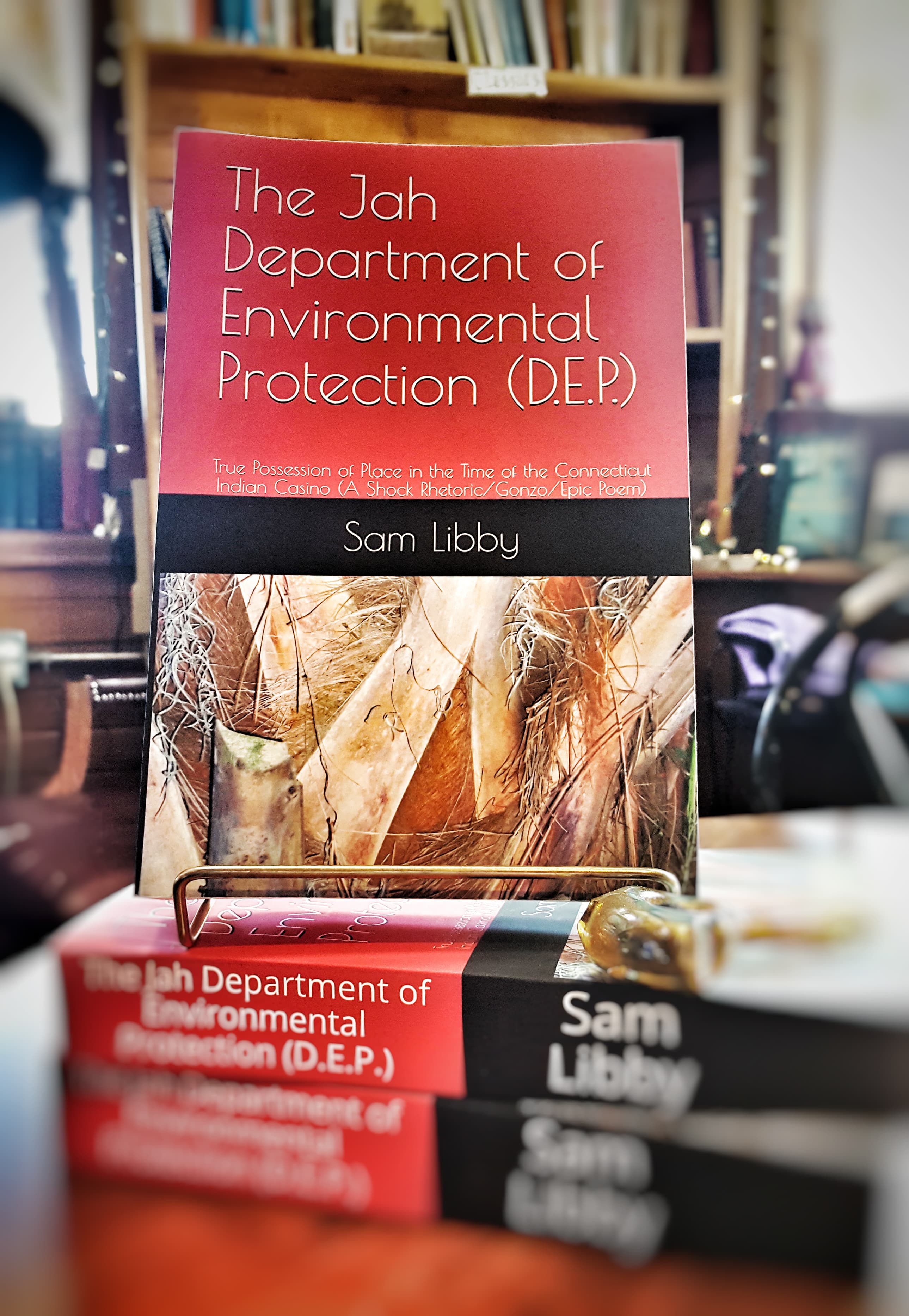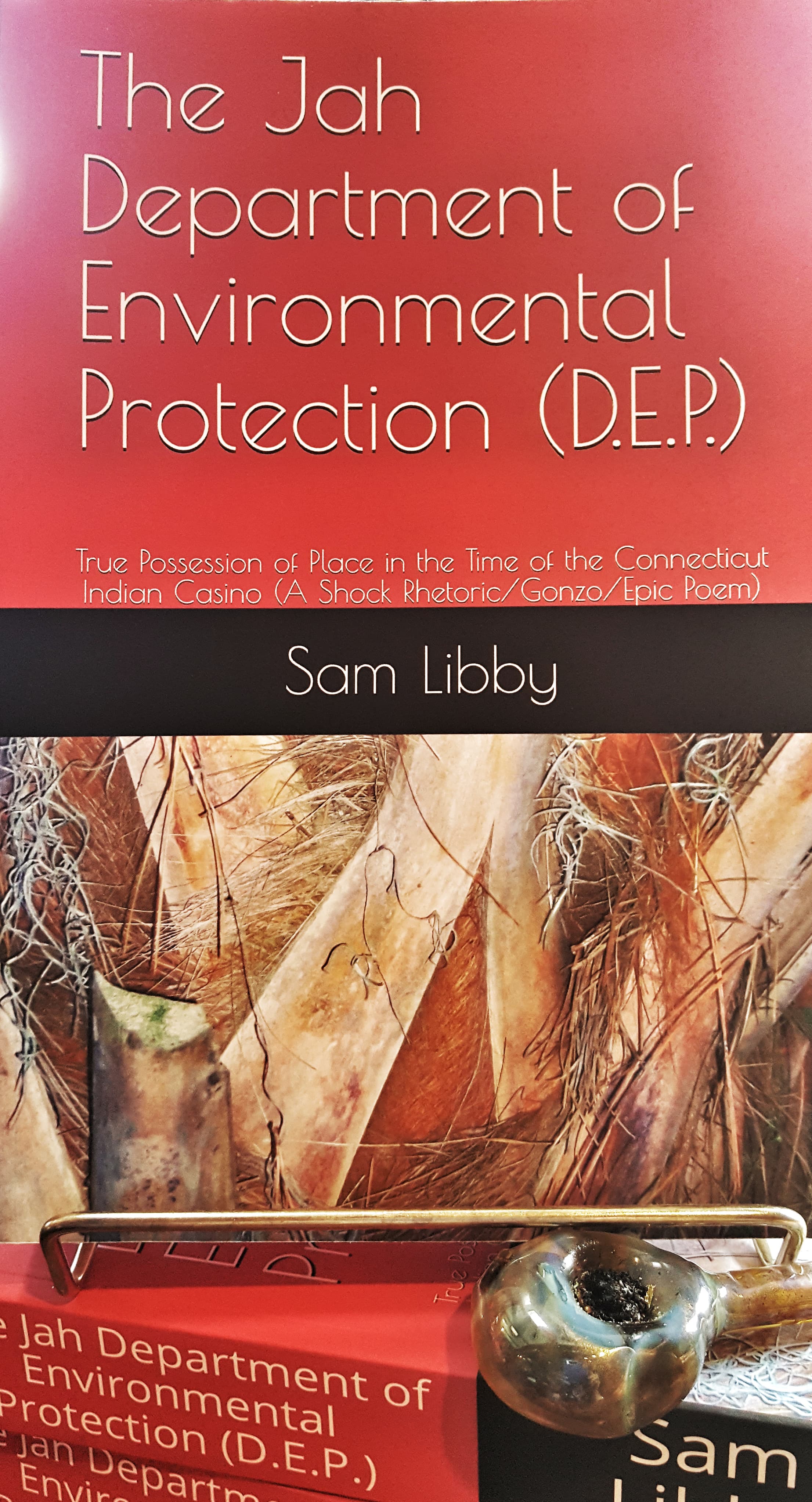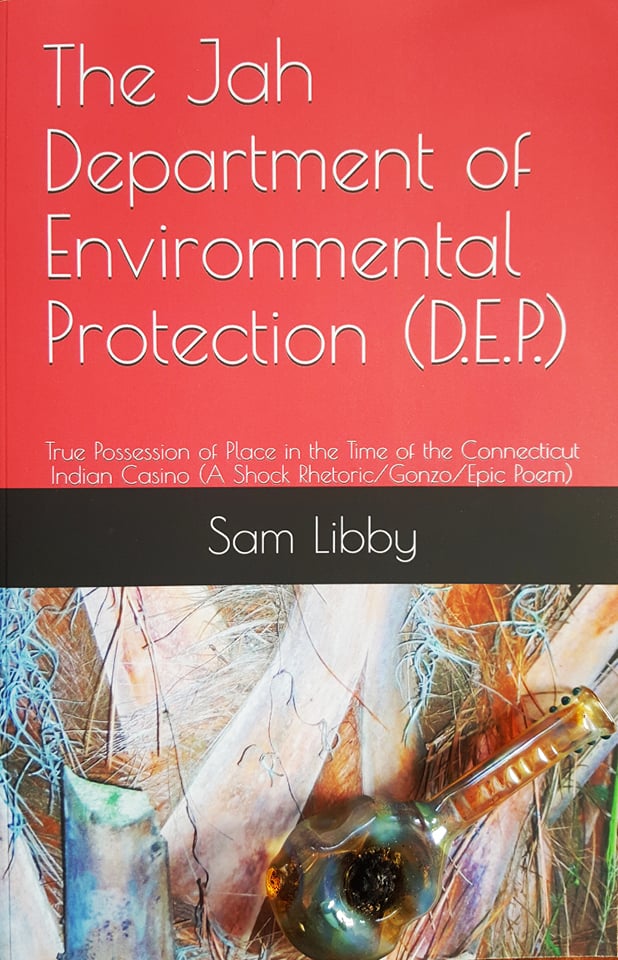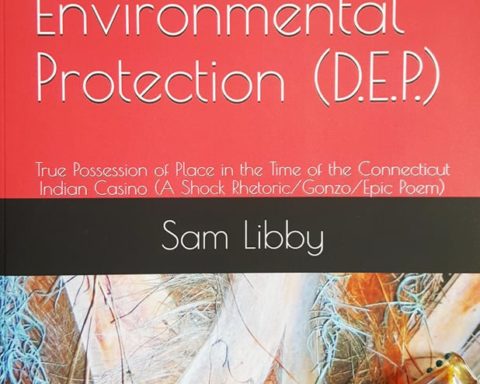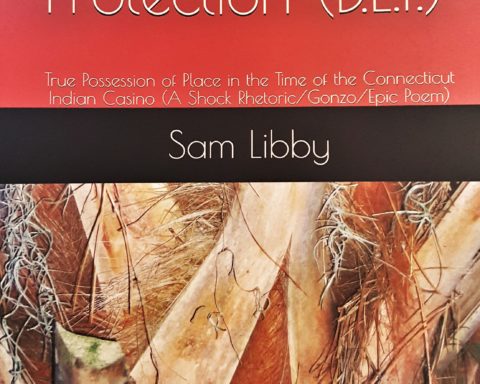Writing spoils reading for the writer. A preoccupation with style and narrative voice makes any text which lacks snap seem insipid, execrable, 97% of all books are insufferable. It was therefore pleasant to find that Sam Libby’s “The Jah DEP,” is in that three percent of books. I couldn’t put it down – it kept me up past my bedtime. A thunderstorm of gonzo journalism with sentences and fragments like lighting bolts, “The Jah DEP” hovers over the reader’s head for a time. Its light changes the land.
The reader had better accept the book’s terminology, ideas and assumptions; there is no escaping them. The insistence of the narrator, while occassionally maddening or seeming mad itself, gives the book its stormy power. The story is a tale of betrayal in natural surroundings. Libby lived in a house built of a fallen tree on the North American Wildlife Association’s (NAWA) wildlife refuge in East Lyme, CT. He is Robert Salvatore’s (a founder of NAWA) apprentice in the growing of cannabis and its neo-shamanistic use. But the refuge is “the kingdom of Robert’s herb, founded on resentment.” It is the cult of the pathetic wild animal,” where people fuss over dying raccoons but are callous and cruel to each other. As the story of the refuge and its bust unfolds, the animal lovers seem more and more unsavory. There is a memorable Judas figure.
The chapters are headed mainly with quotes from D.H. Lawrence’s “Studies in Classic American Literature,” one of my favorite authors, and a work I haven’t read. Lawrences book concerns true psychic possession of place, and how white people in America have never achieved it. Libby brings Lawrence’s ideas to the present Southeast New England of the Indian casinos.
He argues that the Indian casinos are in no way Indian entities since they exclude the vast majority of people with the tribal blood. Libby says the Indian casinos are nothing but manifestations of corporate greed, a betrayal and denial of the sanctity of the place and the ancestral spirit.
Uncas of the Mohegans and Skip Hayward of the Mashantucket Pequots are targets. But annexation and casino foes beware. Libby hates the white establishment, much more.
Libby sees resentment as a primary motivating force in the human condition. The universality of the resentment makes all of us “niggahs.” This idea takes getting used to. The word is offensive despite the hip hop spelling, and use. “We are all niggahs,” the book declares, which made me laugh, for I’ve never felt that way. Yet the theory of resentment is a sadly apt one. It helps explain Connecticut colonial history and how that history has evolved into the present situation.
This is the sort of book of maddening intensity that provokes intense polarization either for or against. After reading the book it is hard to support current marijuana laws. For Libby, the natural right to use all plants is a matter of pressing Constitutional and spiritual importance.
Though told by this ancient mariner of a narrator, who grabs you by the collar and won’t let you go, the story is scant on autobiography. We have little idea how Libby came to the crisis depicted here. There are tantalizing glimpses of his youth in Norwich and a moving testimony to his father, a famous political “gadfly.” I hope Libby’s next book will be even more personal.
